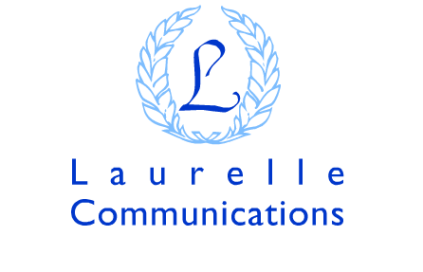Names Matter
Names have a life of their own. A person may embrace his or her name, tolerate it, embody it, or reject and change it. The sound and meaning of my first name have always pleased me. It was never shortened when I was a child because my mother hated nicknames. She stuck to the traditional names chosen for her children. Once someone tried to call me Laurie. It felt like a bucket of cold water had been poured on my head. I immediately responded, “Don’t ever call me that again!” My intense response shocked me. The diminutive simply did not fit.
Fitting Names Together
When we were expecting a child, my husband and I practiced different names for several months. I repeated them aloud to see how they sounded with our last name. I practiced writing them down to view the visual impression. We wanted something musical. Did the combination of names have a balanced number of syllables? Did the name look elegant in cursive? Did we both like the names—we agreed that we did have to agree. I also watched the “Births” section of the newspaper each week to see if a certain name had appeared. If it appeared, I dropped it. I didn’t want my child to be one of many with the same name in his or her school class. Our daughter ended up with a three syllable first name, a one-syllable middle name—spelled to match one of my favorite characters in a book which was also a relative’s middle name, and our two-syllable last name. Her name connected her to my family, my literary interests, and her dad’s family. It was easy to understand when pronounced. Her chosen name made us both happy. I also liked what I thought it meant, but on this I was mistaken. I thought her name was a derivation of Elizabeth. It is not. It is a derivation of Adelaide. So while I thought it meant truth (My God is my oath), her name means “noble type.”
Names Are Significant
Names carry meaning. The meaning can shape the person who holds it. Names can be selected to infer extreme femininity (see all the novels in which the female character is named “Lily”). Other names in novels exaggerate masculinity (Stud). First names can be chosen to hide the gender of the person carrying the name, a recent trend again based on current values.
Recently, I read a study in the American Psychological Association that studied participants’ abilities to match names from a list correctly to images of individuals. Participants could surprisingly match names to unknown faces. One interpretation is that individuals literally grow into their names. Interestingly, my adult daughter is a very noble type—tall, slim, and striking in beauty.
Historical Names
When I was small I wished my name had a connection to the past because my siblings’ names recalled those of our ancestors. Being named after a historical figure or a current statesperson can link a character to the past. The simple act of a woman keeping her own last name or taking on her husband’s last name when she marries makes a political statement that reflects a historical moment. Spouses who create a new last name for themselves when they marry indicate on the other hand a refusal to accept tradition. In a sense, they are creating a rift in history.
Naming Characters in a Novel
As a writer, I am attentive to the names I give my characters. The derivation of the name matters. The form of the name makes a difference. I have also dabbled in numerology and its relationship to names. In a sense, the name carries the destiny of the person—determining how they look and act. For my characters, I have chosen names that reflect the character’s personality and life trajectory. Their family history and genealogy are relevant. The names that I have selected, while not necessarily the most common in that age group, would not have appeared strange during the time period of the story.
Although as Shakespeare said, a rose with any other name would smell as sweet, it is all in a name.
Update on My Goal Setting:
- I have finished six months of writing accompanied by fascinating research. I have learned that I cannot write without research to back up practically every paragraph.
- Since May 7, 2018, I have continued to make progress on my novel. On July 7th, my page counter should stand at 181 and it does. Whew!
- Today, July 7, 2018, I am posting my seventh blog. Blogging while I am working on a novel has helped to keep me focused. It has also allowed me to reflect on my choices. This past month, I have had to rework the sequence of my chapters. As the story continues to develop, some gaps have occurred. It takes adding a chapter or a section of a chapter for the development to make sense.
Happily, my writing network continues to grow. I attended a double workshop on the importance of maintaining a physical exercise regime while writing. The topic nudged me to remember that I have a body as well as an imagination. The first speaker, Hilary Constable, discussed how running fuels her creativity. The second, Brad Wetzler, discussed how a regular yoga practice keeps him healthy. He finds that he generates more ideas after a yoga session. Since running is out of the question for me, I may have to reboot my yoga practice.
